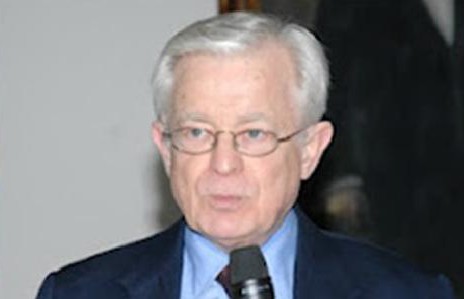
Puryear Speaks on Education Quality at the Virtual Educa Caribe Conference in the Dominican Republic
Conference to discuss the topics of training, innovation, corporate social responsibility, and sustainable development.
The results of the latest regional student achievement test organized by UNESCO indicate that Cuba has an ample academic advantage over its peers in Latin America—at least in primary, in math, reading, and science.
In order to better understand the success factors of the Cuban education system, as well as its potential lessons for other systems in the region, PREAL has participated in two activities in Washington, DC. First, it has organized a discussion on Martin Carnoy’s book, Cuba’s Academic Advantage: Why Students in Cuba Do Better in School. Second, PREAL’s Co-director, Jeffrey Puryear, participated in a Q&A session in a recent issue of the Latin America Advisor, the daily on-line newsletter of the Inter-American Dialogue.
You can access the recording, notes, and other materials on the discussion on Martin Carnoy’s book through the Dialogue’s website.
Q&A session published in the Latin America Advisor below:
Can Cuba’s Education Successes be Exported to Latin America?
Q:For decades, both businesses and governments have bemoaned an inadequately educated workforce in many Latin American countries. In a recent UNESCO math, science and reading exam, 50 percent of Cuban students scored at the highest level, compared to only 10 percent of students from the rest of Latin America. Yet little is known about the causes of Cuba’s apparent successes, which are often cast aside as the products of indoctrination. Do Cuba’s successes hold up under closer inspection? If so, are parts of the Cuban system exportable to other countries in Latin America?
A: Guest Comment: Jorge Sanguinetty: “Cuba’s apparent success in education, as reported by Martin Carnoy, is only based on two indicators of academic achievement. Even if we want to believe that the results of the achievement tests were not biased, there are many other characteristics of the education system in Cuba that are not very admirable. A much more thorough, objective and rigorous examination of Cuba’s education would be necessary before we can propose to export such system to other countries. There is no question that obtaining high mean scores in reading comprehension and science is a desirable outcome, but its causes might not be very ‘exportable’. One reason is that Cuba had already a tradition of relatively good education and teachers long before the revolution. Then, after 1959 there was no labor market mobility and good teachers were forced to stay in schools as the government became the only employer. A third reason is that Cuban parents had a great expectation about the role of education as a factor for upward mobility, a notion that has been shattered in the last ten years as the economy deteriorates. The real achievement of the Cuban education system, before its recent decline, was its ability to expand coverage even if owed to Soviet subsidies. Regrettably, no independent educational research has been done by Cubans in the last fifty years.”
A: Guest Comment: Jeffrey Puryear: “Unlike the rest of Latin America, Cuba appears to be providing most of its children with world-class skills in reading, math and science. But Latin America has paid little attention because the Cuban model is based on social revolution, repressive dictatorship and economic stagnation. Still, countries would do well to heed at least a few lessons from Cuba’s experience. First, sustained political pressure from the top makes a difference. Cuba has spent nearly five decades in a massive effort to extend and improve education. Its president long ago made it clear that education is his personal concern, and has put political muscle behind his words. Second, high-quality teachers are essential. Through a combination of high standards, prestige and competitive (although low) pay, Cuba has managed to convince relatively talented students to enter the teaching profession. Third, properly managing teachers is crucial to effective teaching. Cuban teachers are genuinely accountable for their classroom performance. They are closely supervised, supported and evaluated. Those that fail to provide effective instruction must leave the teaching profession. It’s worth noting that Cuba does not stand alone in adopting these strategies. Countries around the world with successful education systems have found ways to marshal political support for necessary reforms, attract the best and the brightest to teaching, and establish meaningful accountability. Latin America has largely failed to do so.”
A: Guest Comment: Luis Crouch: “Cuba’s education system is admirable in many respects. Researchers such as Martin Carnoy have recently shown us many of the features that work. Instilling respect for learning, providing lots of time on task, expecting high cognitive performance in children, providing exercises that allow the acquisition of skill in symbolic processing, being able to distinguish rote learning from automaticity in symbolic manipulation, and keeping the latter while eschewing the former (rather than thinking, as is often the fashion elsewhere among Latin American ‘modernizers’, that rote learning and automaticity are the same thing, and that both are opposed to conceptual understanding), and so on, are all features that distinguish the Cuban education system from those of the rest of Latin America. Carnoy makes the interesting point that some of the features of the Cuban education system also characterize rather elite schools in Latin America: high cognitive demand, not falling for ‘easy’ educational fads (such as the conflating of rote learning with automaticity of skill), and so on. One other feature that Cuba has in common with some of the interesting private ‘systems’ (as opposed to individual private schools and the public systems in the rest of Latin America) is a process of gradual reform based on analysis, evidence, and accretion, rather than jump-starting new educational fashions and new ‘curricular reforms’ constantly. In some respects, and along this vein, for example, the Cuban system seems to have more than one or two things in common with the Fe y Alegria system of Catholic schools in Latin America. These systems have evolved through careful observation and gradual improvement over dozens of years. (Coincidentally, the Cuban education system and the Fe y Alegría system started in 1959 and 1958 respectively, and have been sharpening their approach gradually.) But is the Cuban system exportable? More interestingly, would exporting the system lead to the same results elsewhere in Latin America? It is good to remember some things that make Cuba exceptional. First, contrary to popular perception, Cuba already had some of the highest enrollment rates in Latin America as long ago as the early 20th century, so the ‘miracle’ is a little less miraculous than it appears. Second, Cuban teachers enjoy higher relative pay and status than teachers in Latin America, and it would be hard to reproduce this elsewhere in Latin America. In Cuba teaching is one of the few good jobs in the formal sector of the economy—not so in the rest of Latin America. Third, Cuba spends a large share of its income on education. These background features are not exportable. But many aspects are in theory exportable, and all evidence on effective schooling suggests that such practices would have a positive impact on learning. Yet, many of these practices would contradict existing practice in Latin America. For example, the level of labor discipline, and the degree of enforceable state and principal authority over schools that prevail in Cuba would hardly be likely elsewhere in Latin America. Thus, perhaps a useful conversation to have would be not so much around whether the model should be exported, but around what kinds of political and labor conditions, and what kinds of educational tradeoffs, would have to be made to make it possible to export such a model.”
Jorge Sanguinetty is President & CEO of DevTech Systems, Inc.
Jeffrey Puryear is Vice President for Social Policy at the Inter-American Dialogue. He is also the co-director of PREAL, a joint program with the Corporation for Development Research (CINDE) in Santiago, Chile.
Luis Crouch is Vice President in the International Development Group at RTI International.
Conference to discuss the topics of training, innovation, corporate social responsibility, and sustainable development.
Education policy — what Romney and Obama agree and disagree on.
Video of PREAL co-director at III Forum on Education Quality.
